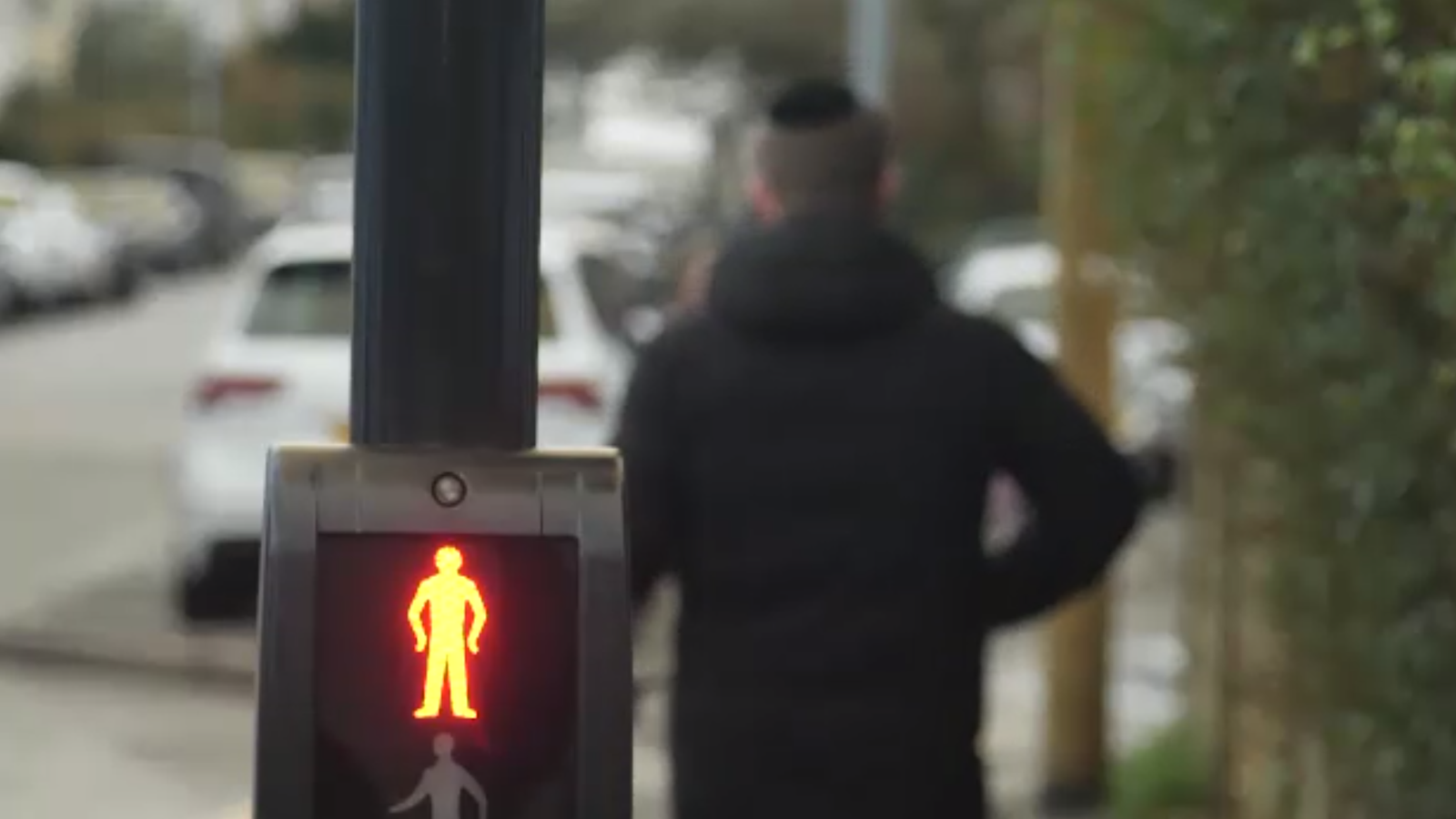Ben Katzav has been in Manchester for eight years.
His pizza shop is on the corner of King’s Road in Prestwich, an area lined with kosher delis and butcher shops, a short drive from a synagogue.
As staff bustle in and out of the kitchen and customers sit down to eat their pizzas, Ben tells me how he no longer feels safe in his place of work, or the country he now calls home.
Middle East latest – Biden’s plea to Israel for ‘credible plan’
Fear stemming from a bomb threat last year made by an unknown caller.
“Immediately I closed the restaurant, because I didn’t want to put anyone in danger – not my customers, my staff and not myself as well,” he recalls.
“I contacted the police to do the checks, to make sure that it was safe.”
Ben says the incident capped off a rise in threats that he can trace back to 7 October, when Hamas carried out a massacre in southern Israel triggering a retaliatory military offensive, which has devastated Gaza.
Since then, he’s had threatening messages sent to him online and calls from people he doesn’t know, asking if he’s a Jew.
In Manchester, this sense of anger and anxiety is becoming commonplace.
Raphi Bloom is one of the directors of The Fed, an organisation that helps thousands of Jewish people across the city, offering welfare support.
His role supporting others means he’s seen and heard first-hand how a number of people have taken steps to hide symbols of their faith.
From no longer wearing skull caps in public to painting over their Mezuzahs – pieces of parchment inscribed with specific Hebrew verses from the Torah – usually fixed to the doorposts of their home.
The recent climate, described by the Community Security Trust as an “explosion of hate” has even seen him question his family’s future here.
He said: “More needs to be done, so that I know that my grandchildren have a future in this country in 20, 30 years’ time, because at the moment, I don’t think they do and that really upsets me.”
The conflict in the Middle East is fracturing British society, and on the other side of the Pennines at the University of Leeds, Jewish students are also feeling weary of the current situation.
Read more:
Israeli special forces launch raid on largest functioning hospital in Gaza
Hamas leader didn’t expect consequences of 7 October attack to be ‘this dangerous’
The university’s Jewish chaplain is now reportedly under police protection, after returning to the UK having joined the Israel Defence Forces’ reservists last year.
His trip to the Middle East was one of the focuses of a pro-Palestinian protest on campus this week.
Teenagers say they are having to try and complete their studies, while navigating a divisive, difficult environment.
Emma Levy and and Robin Shuster are the president and chair of the university’s Jewish Society (JSOC.)
The pair have spent much of their time in recent weeks attending meetings with university management about incidents on campus, including graffiti being daubed on the walls of a building the Jewish students use to meet and socialise.
“This is our home,” said Emma.
“It’s everything, it’s the centre, it’s the hub, it’s been here for 70 years. Like if there was one thing to encapsulate the Leeds JSOC, it would be this space.”
Click to subscribe to the Sky News Daily wherever you get your podcasts
Despite the acrimonious atmosphere, the two students, both still in their first year, offer a glimmer of hope when I ask them about eventually opening an interfaith dialogue on campus.
“I think it’s something that we’re working on, we’re definitely thinking about,” Emma said.
“I think when everything has calmed down a bit hopefully interfaith relations can flourish.”
Robin added: “It will take a lot of compassion from both sides.”










